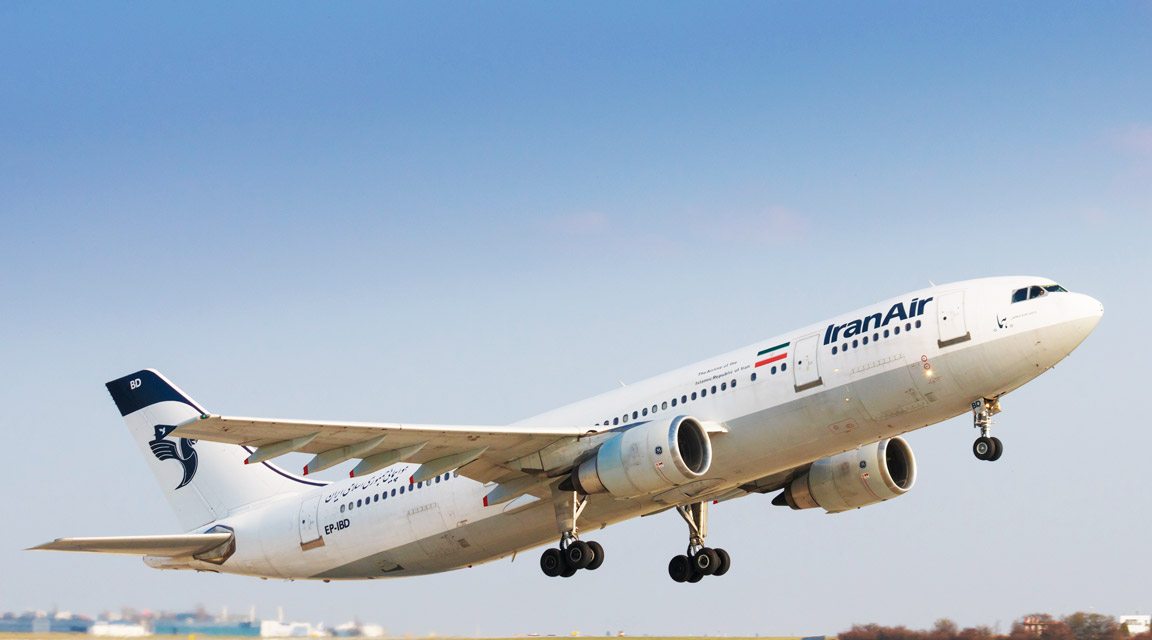

US President Donald Trump’s decision to pull out the US from the Joint Comprehensive Plan of Action (JCPOA) that lifted sanctions on Iran in exchange for limits on its nuclear programme could effectively set back an estimated $20bn worth of deals for US planes manufacturer Boeing.
Boeing and Iran Airlines signed an agreement in June 2016 for the supply of up to 80 planes, a deal which is estimated to cost at least $11bn depending on the agreed aircraft models.
A second contract was signed in June last year, between Boeing and Aseman Airlines, for the sale of 30 Boeing 737 planes. The Iranian airline also committed to the purchase of further 30 planes once the delivery of the first order has been completed.
Boeing said it will “consult with the U.S. government on next steps” in the wake of Trump’s announcement.
MEED understands Boeing has not included aircraft orders from both deals in its order book, which means its backlog of 5,800 planes remains unchanged.
The deal with Iran Airlines met major opposition from the US Congress, which voted in November 2016 to block the sale of Boeing planes to Iran, which former US President Barack Obama vowed to veto.
Those who oppose the sale of US aircraft to Iran, mainly Republican lawmakers, have argued they have evidence pointing to Iran using commercial planes to supply weapons to Syria.
The US decision to pull out of the JCPOA is expected to have an impact even on the deal between Iran Air and French plane manufacturer Airbus, which requires approval from the US to sell planes to Iran since at least a tenth of its components are made in the US.
President Trump’s decision would likely affect the licence granted by the US Treasury’s Office of Foreign Assets Control (Ofac) for the sale of 106 Airbus commercial planes to Iran Air.
So far the airline has received three Airbus jets following year-long negotiations. It received its first A321 in January 2017 weeks after the final contract was signed and a $100m down payment was made.
Airbus sales chief John Leahy said earlier this year that the delivery of dozens of planes to Iran Air will likely take longer to complete than planned. He said they have to arrange financing and that Iran has to understand “about making pre-delivery payments.”
It is understood that the deal with Airbus was partly funded by Italy’s Sace, with the Islamic Republic’s frozen assets within the EU banking systems used as collateral for the loan.
Western financial institutions have remained largely hesitant in doing business with Iran due to fear of running foul of US financial controls.
Other transport projects in Iran, including airport and railway schemes, have struggled to obtain financing outside of Russian and Chinese export credit agencies or banks. Germany’s KfW Import-Export Bank (Ipex), however, is understood to have agreed to fund 50 diesel-electric locomotives to be supplied by Mapna, the local partner of Germany’s Siemens, to the Islamic Republic of Iran Railways. The contract is estimated to be worth between $150m and $200m.
You might also like...

Iraq signs deal to develop the Akkas gas field
25 April 2024

Emaar appoints beachfront project contractor
25 April 2024

Acwa Power signs $356m Barka extension
25 April 2024

AD Ports secures Angola port concession agreement
25 April 2024
A MEED Subscription...
Subscribe or upgrade your current MEED.com package to support your strategic planning with the MENA region’s best source of business information. Proceed to our online shop below to find out more about the features in each package.




